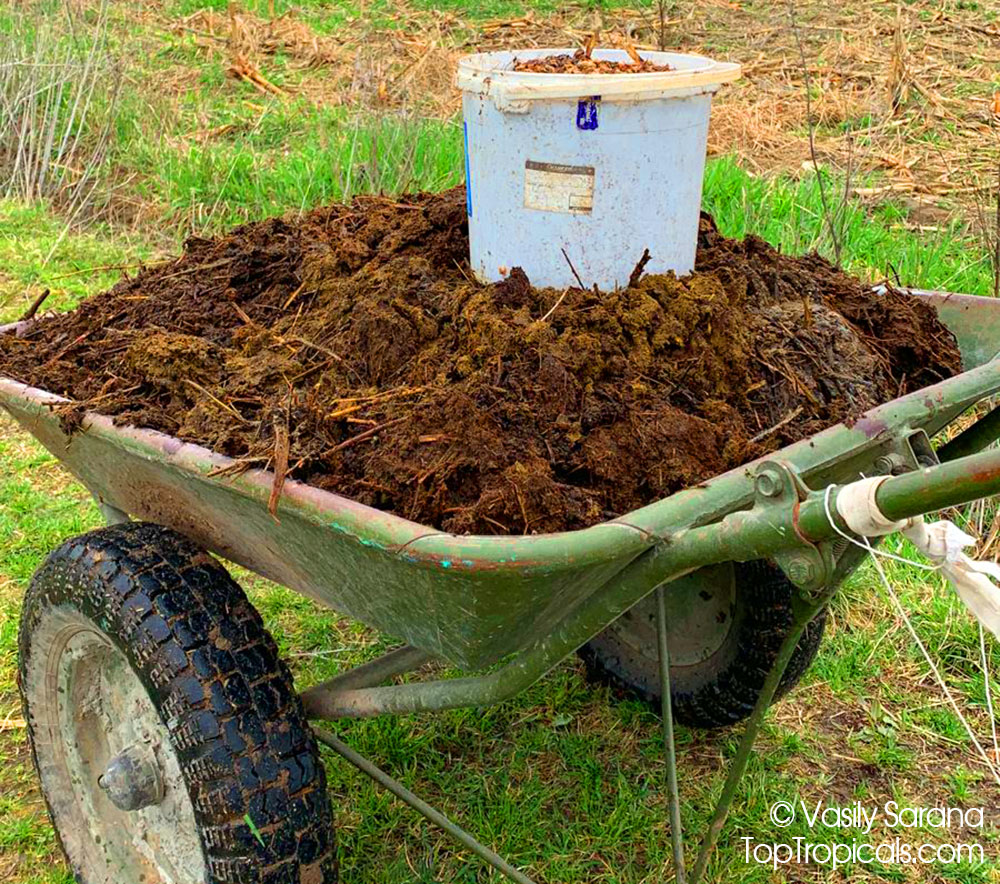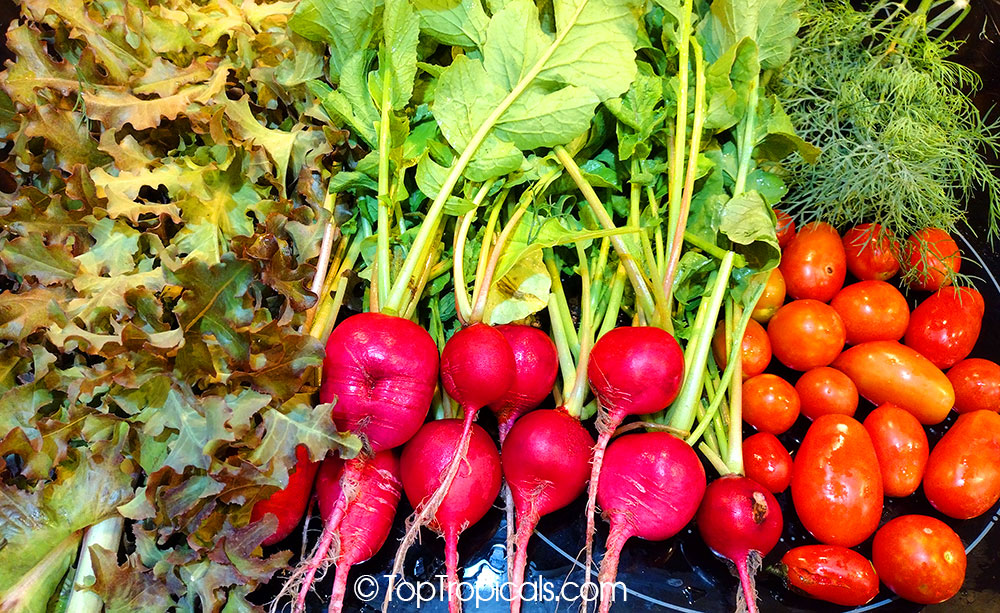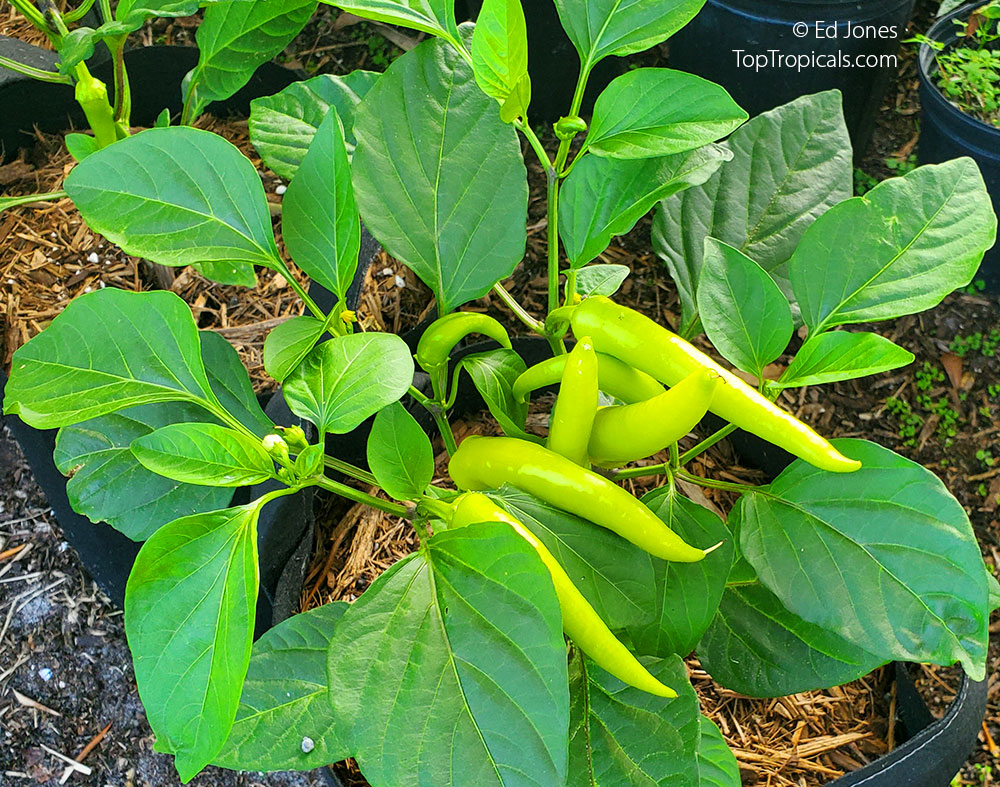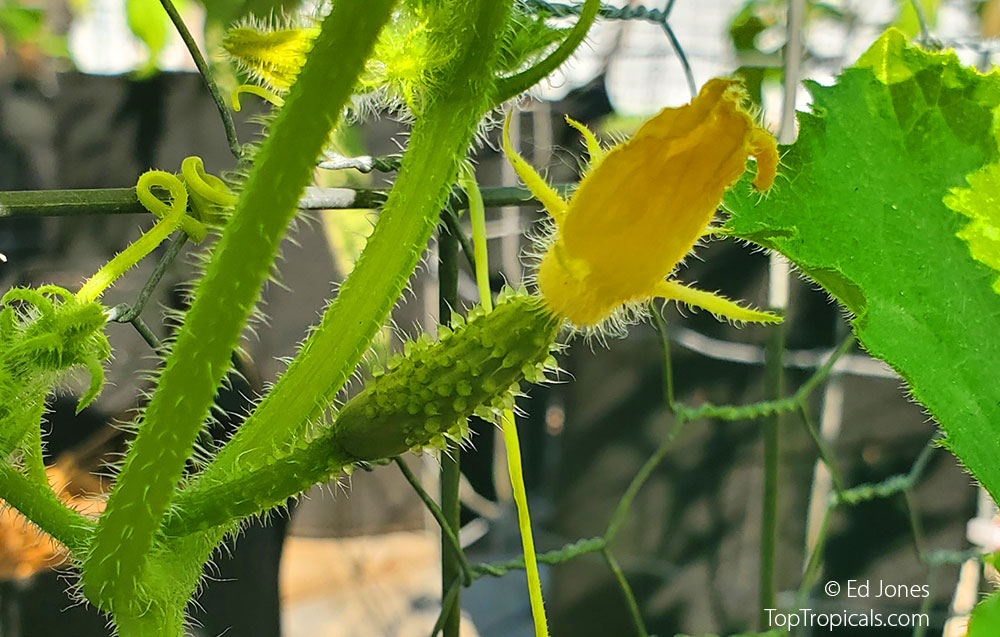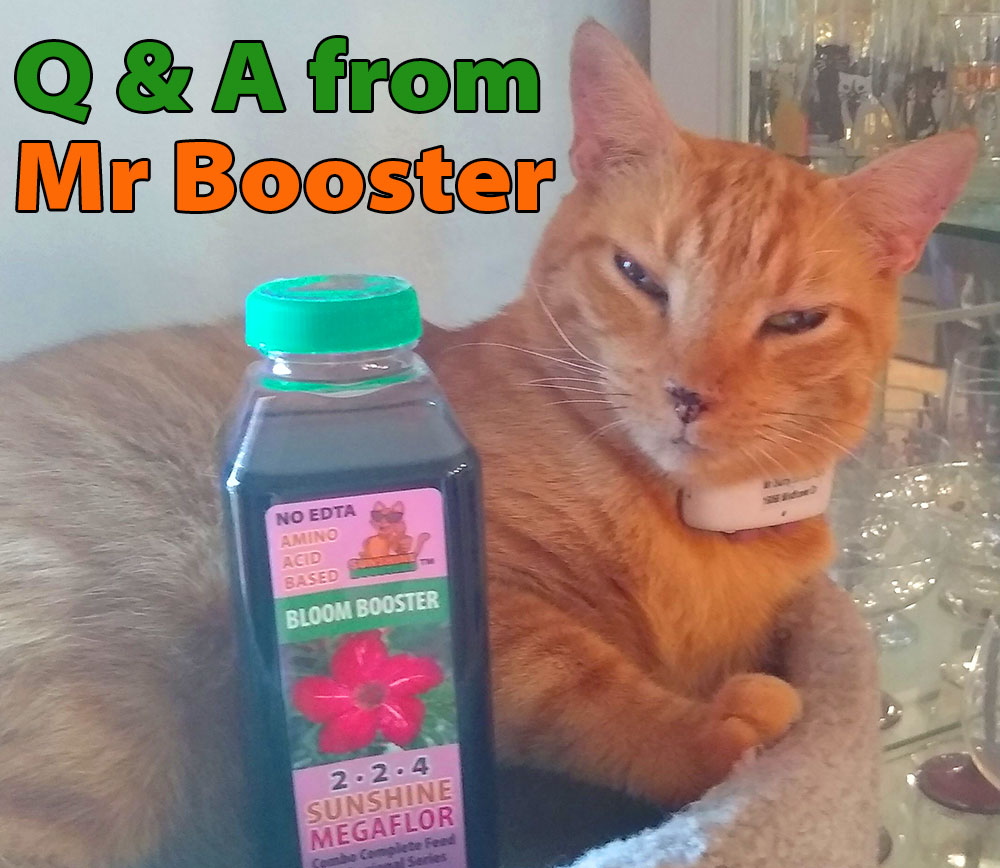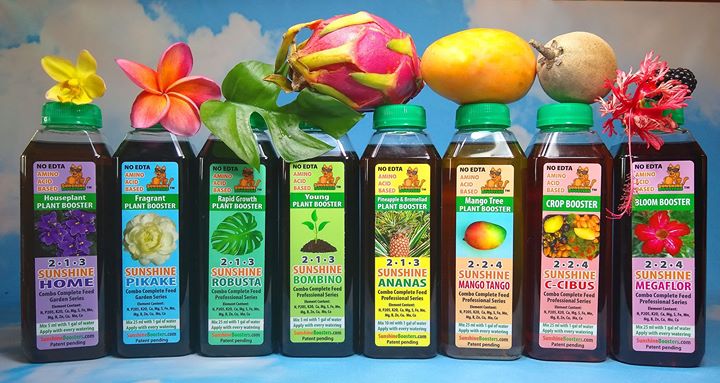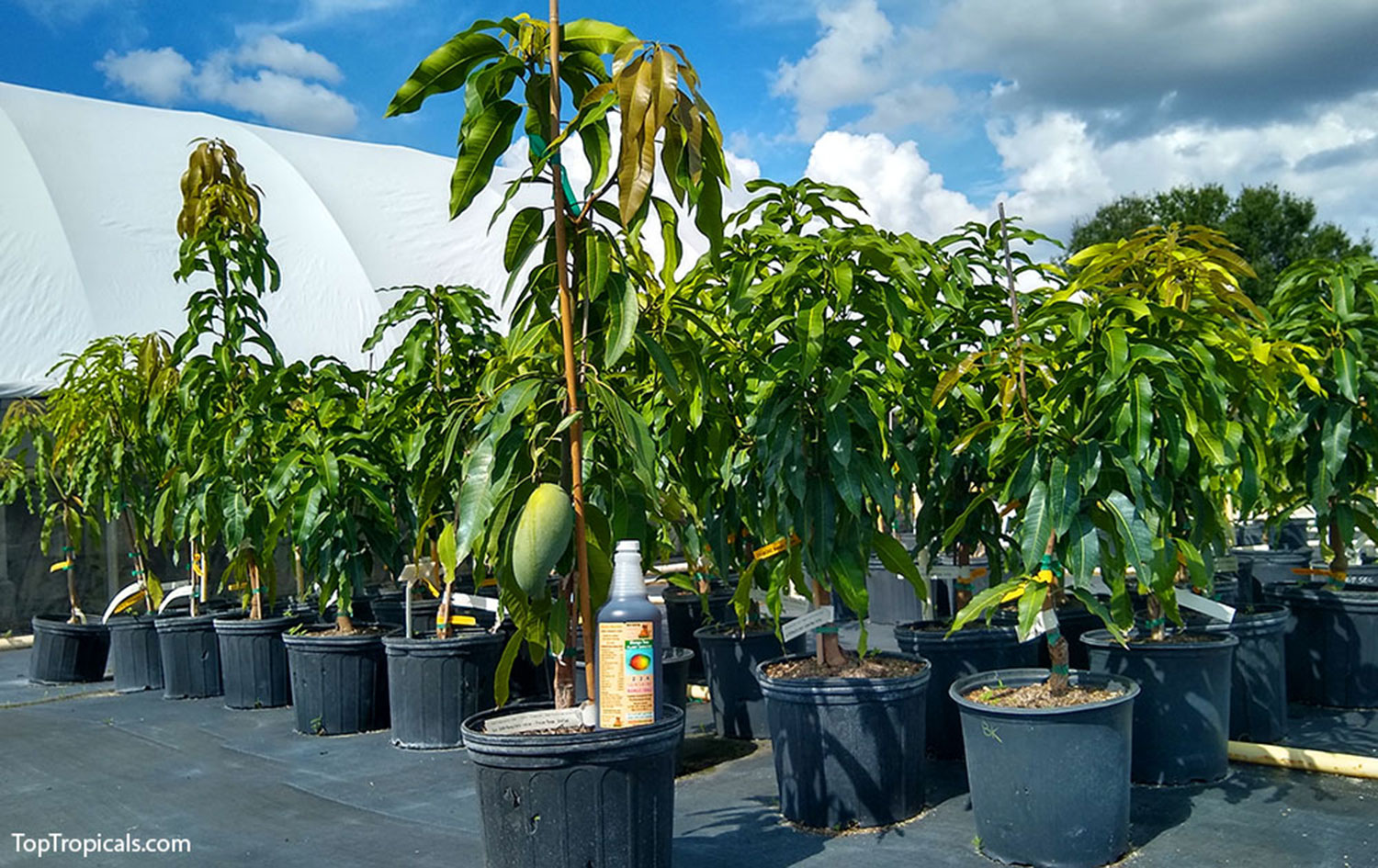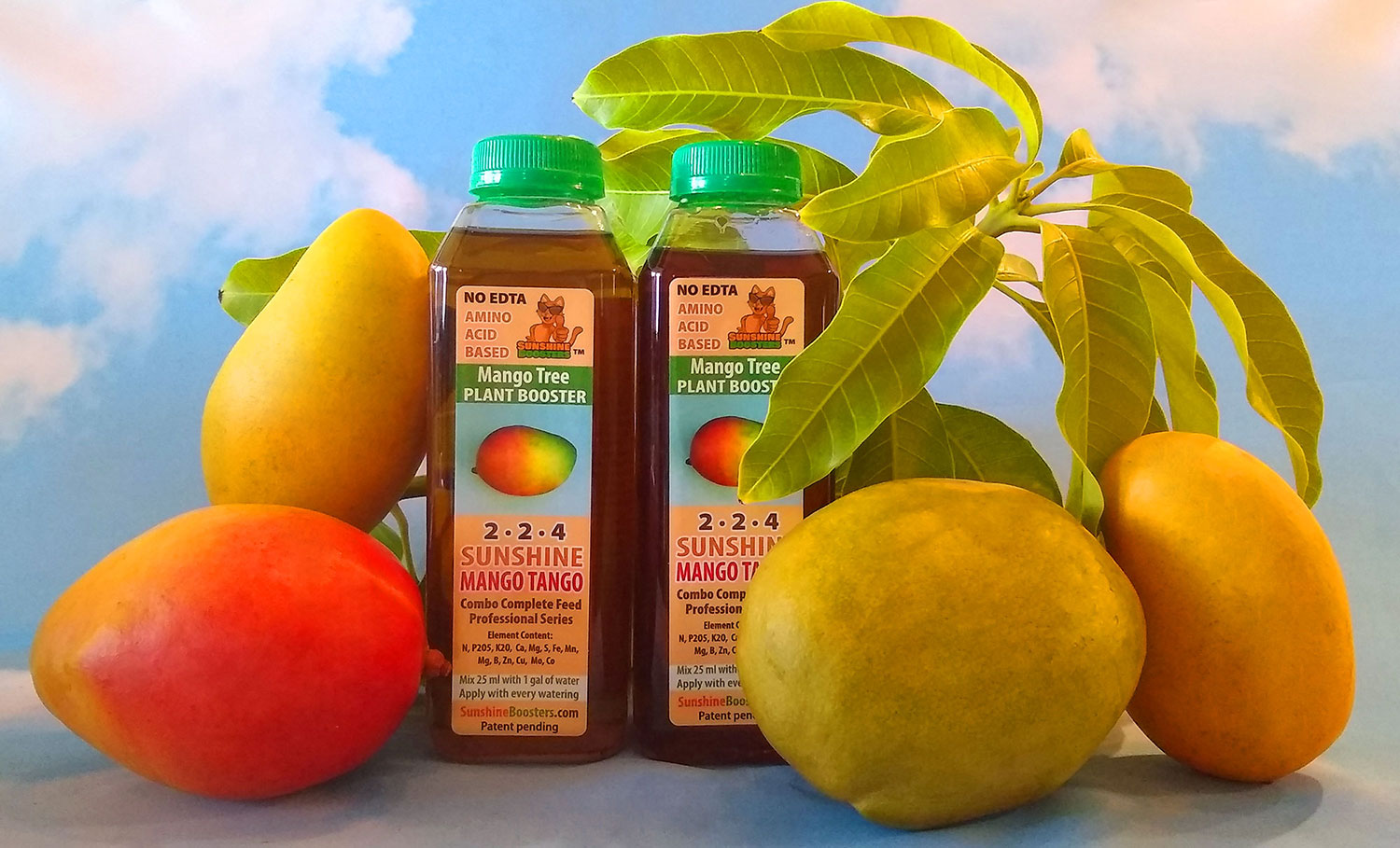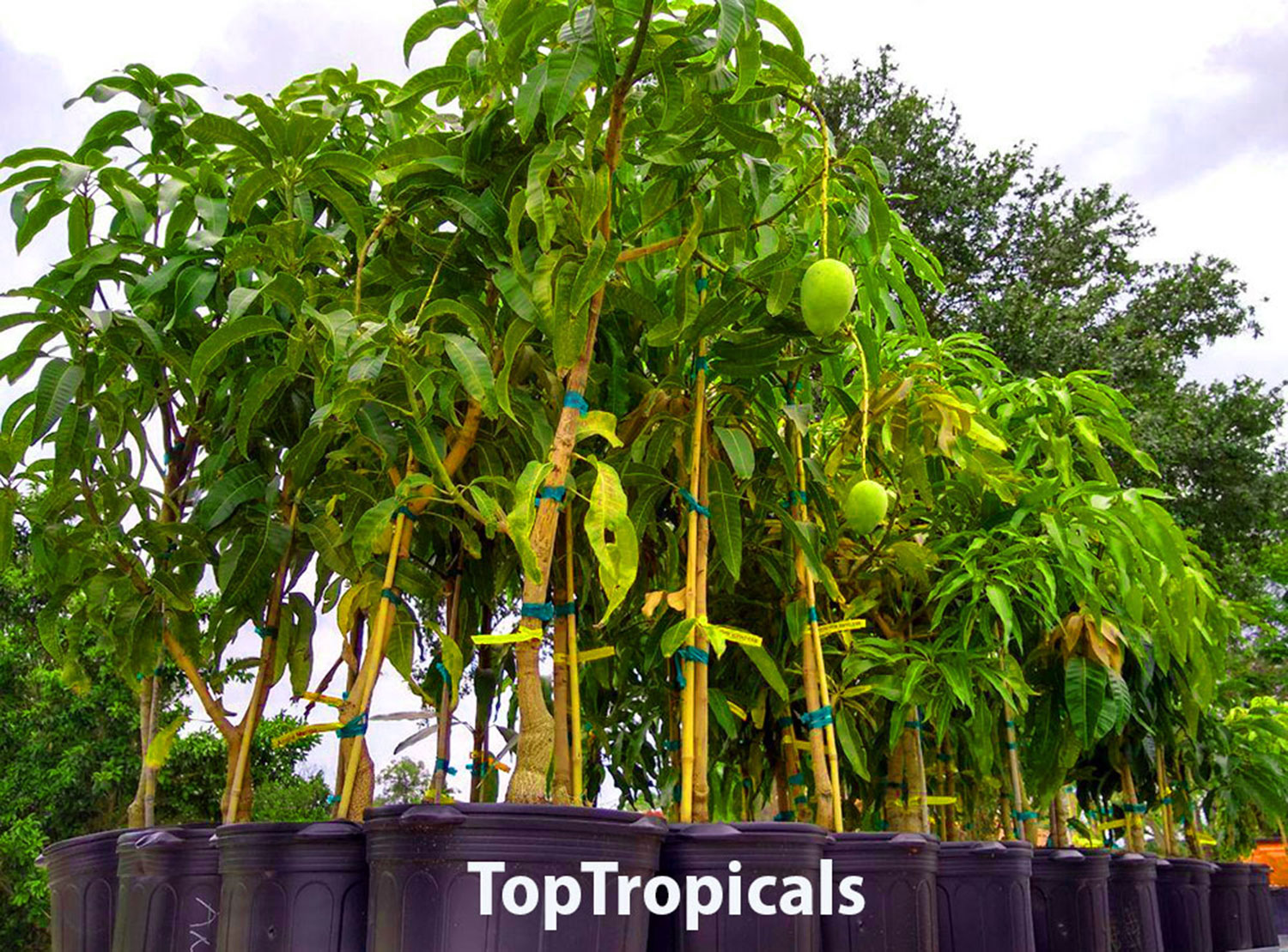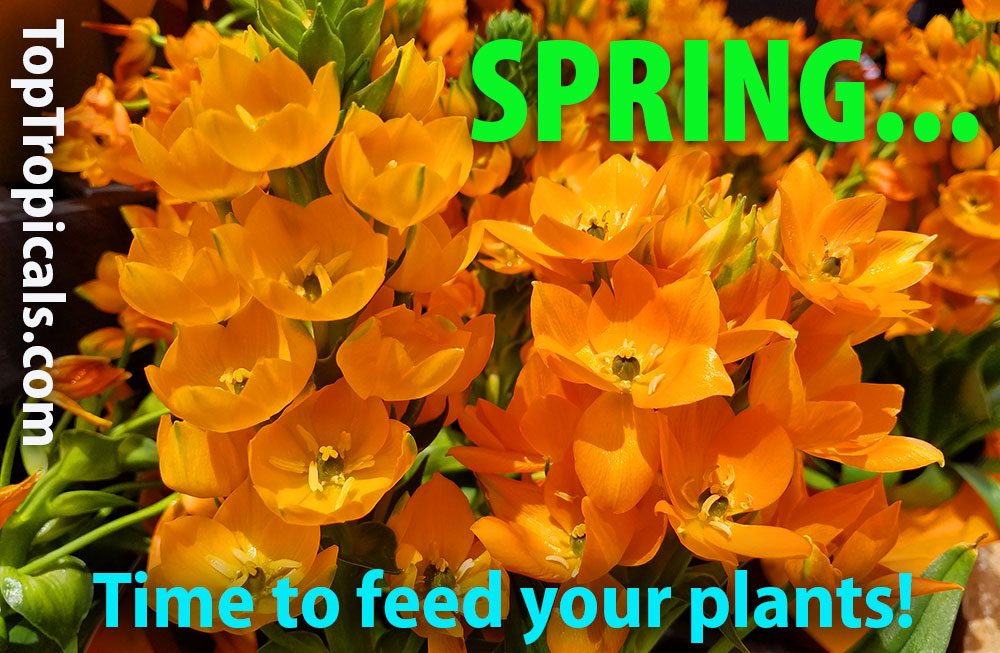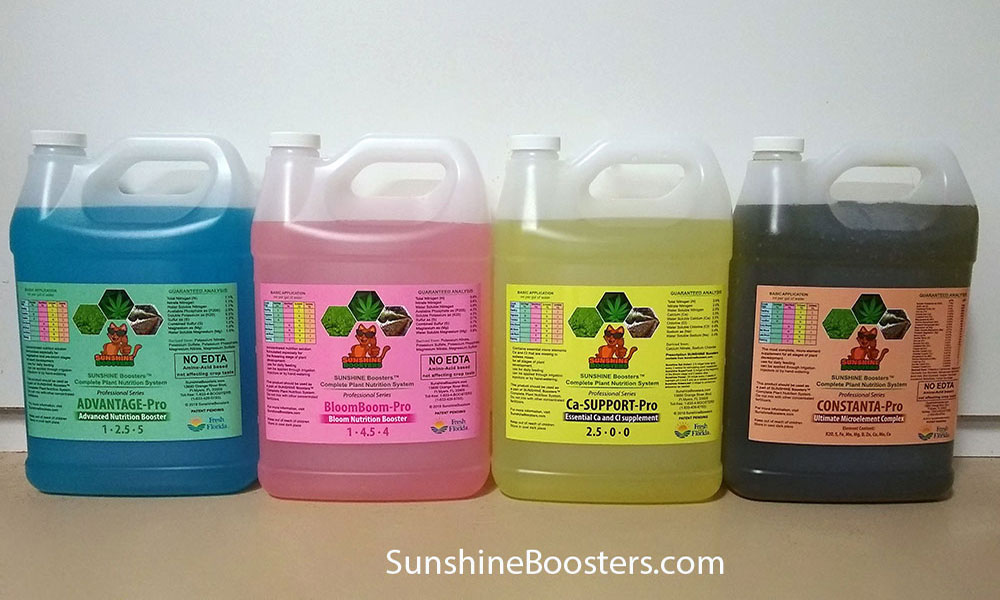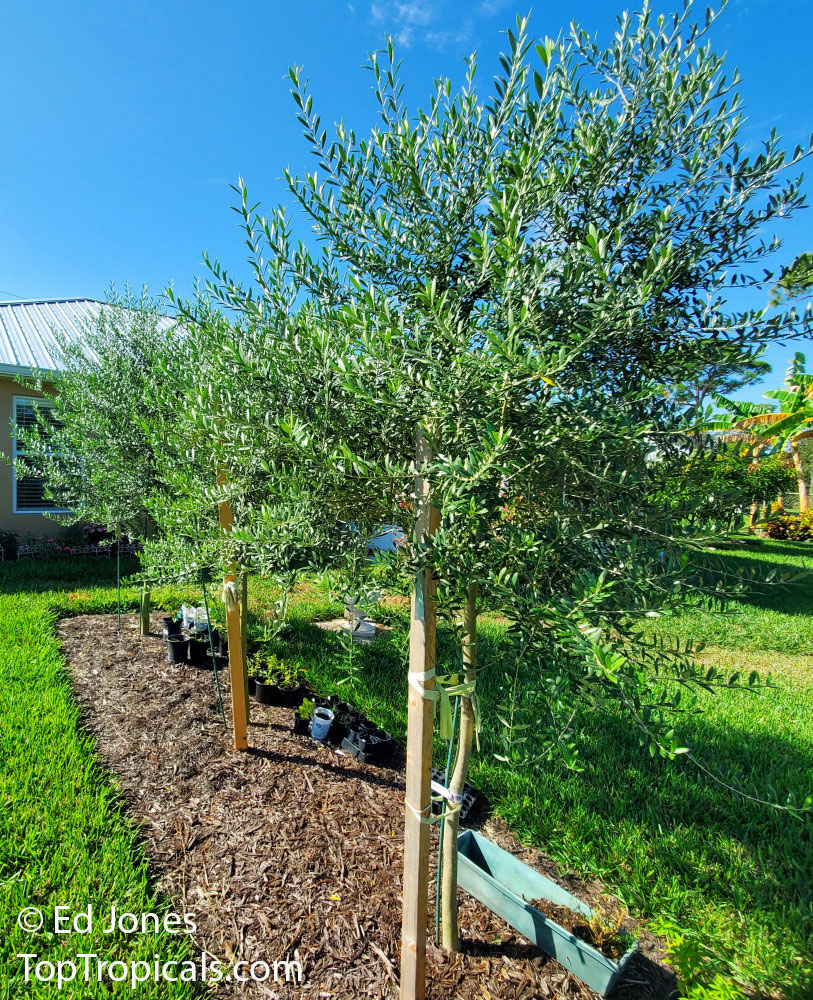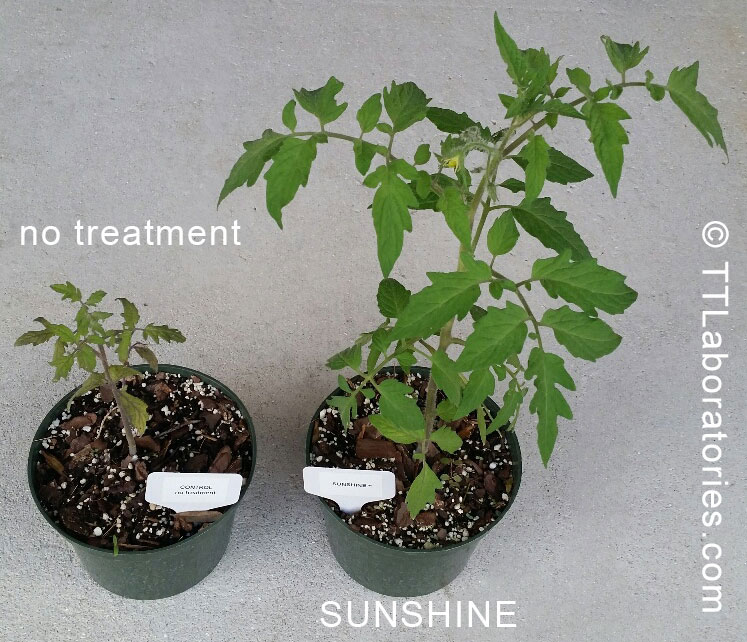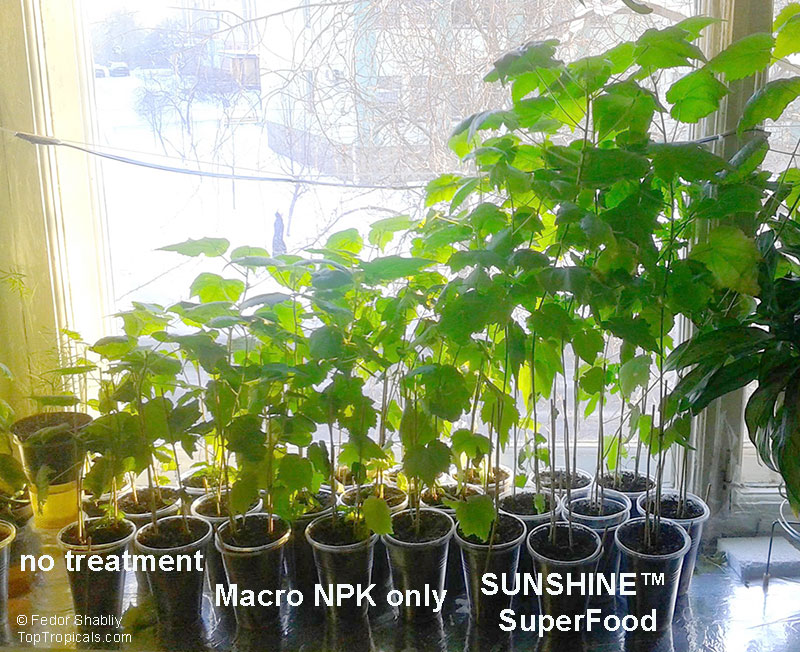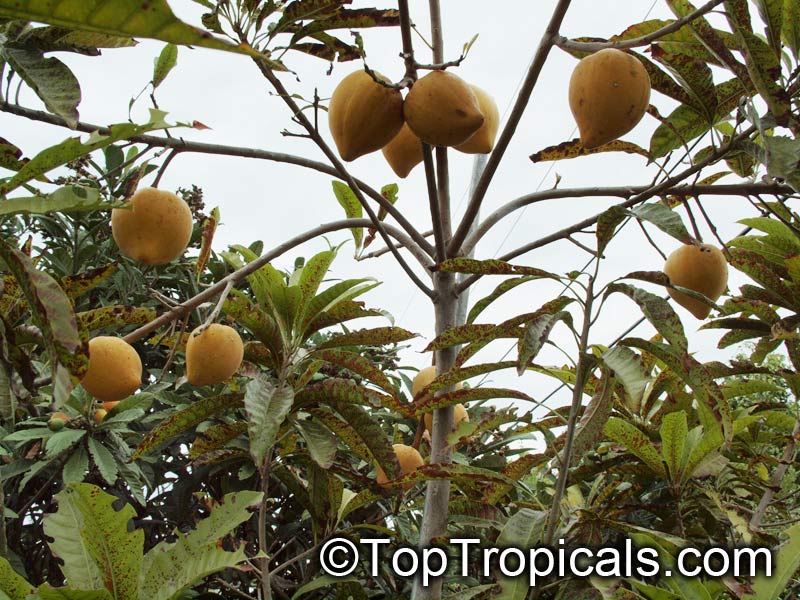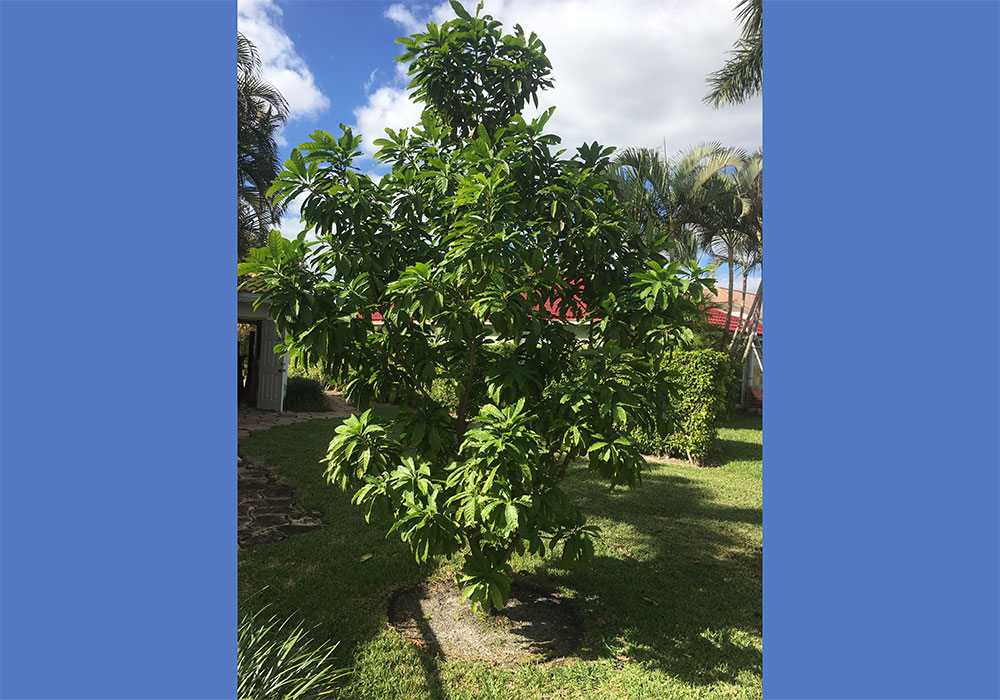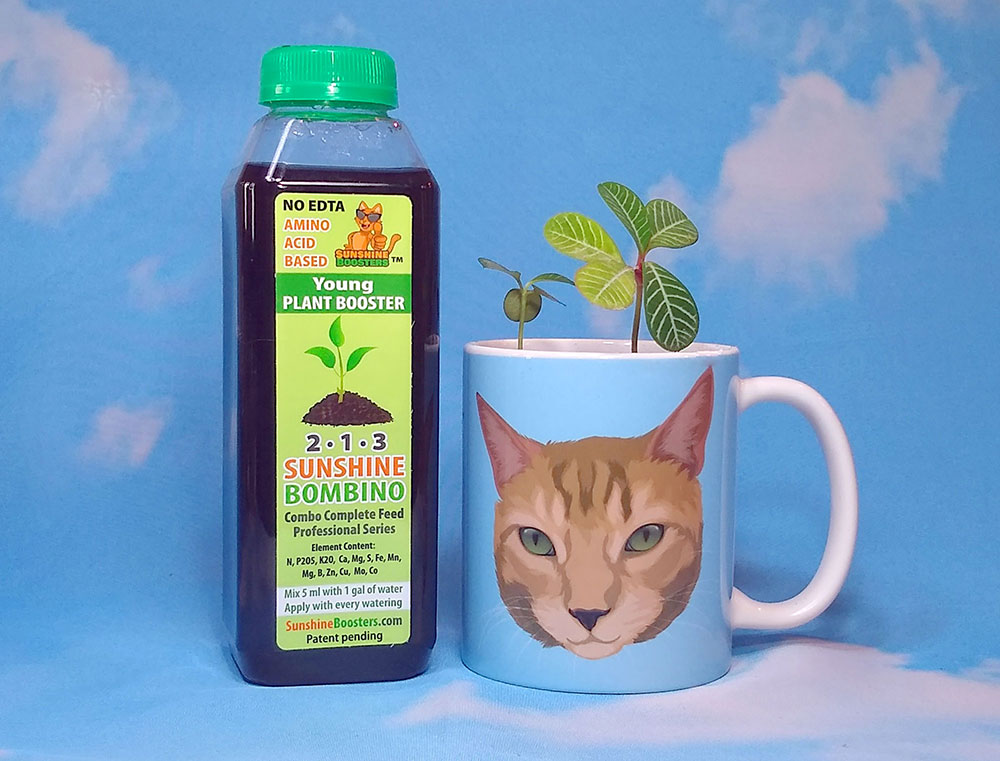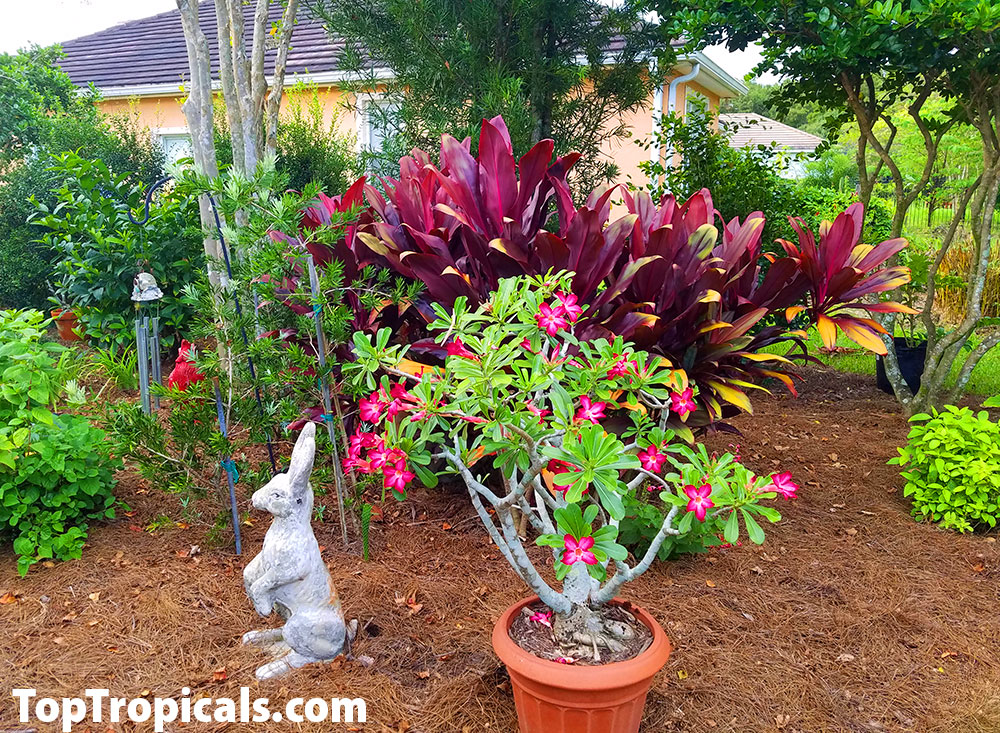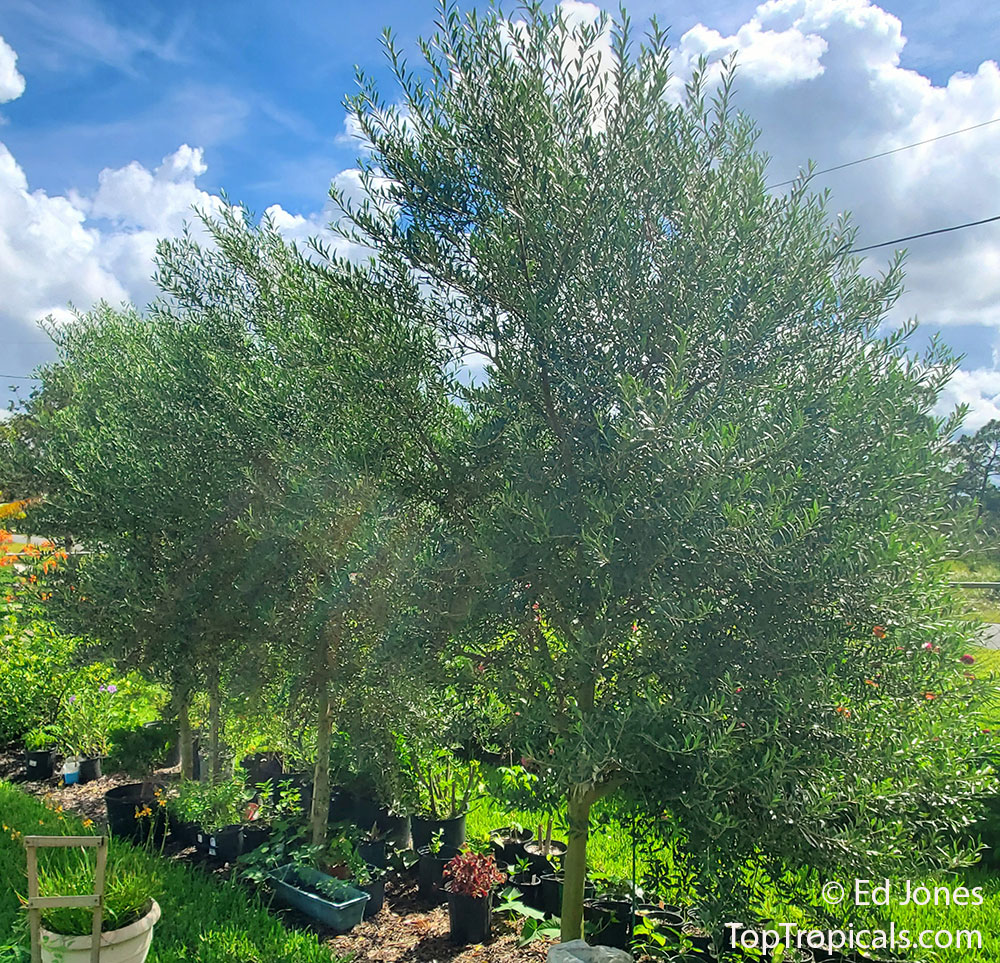Garden Blog - Top Tropicals
Date:
Seven reasons to use Sunshine Boosters fertilizers
Now with REDUCED SHIPPING COST
Q: I used horse manure for my veggies garden but it caused mold and burned my plants. I've heard of Sunshine boosters as a good organic alternative. What are the benefits of Sunshine Boosters fertilizers?
A: Sunshine Boosters fertilizers can be a good choice for gardeners who want to promote healthy plant growth, while also considering the environment. The brand offers a wide range of formulations and high-quality ingredients to meet the specific needs of different types of plants, making it easier for gardeners to achieve the results they want.
Sunshine Boosters fertilizers are a good choice for several reasons:
1. Improved plant growth: Sunshine Boosters fertilizers contain essential nutrients that plants need to grow healthy and strong, such as nitrogen, phosphorus, and potassium. These nutrients can help improve plant growth and increase crop yields.
2. Balanced nutrition: Sunshine Boosters fertilizers are formulated to provide plants with a balanced ratio of nutrients. This means that the nutrients are present in the right proportions to promote healthy growth and development.
3. Environmentally friendly: Sunshine Boosters fertilizers are made from natural and organic ingredients, which can be beneficial for the environment. These fertilizers may also be safer for pets and children who may come into contact with them.
4. High-quality ingredients: Sunshine Boosters fertilizers are made with high-quality ingredients that are carefully selected to provide the best possible nutrition for plants. The brand uses a variety of ingredients to create a well-balanced fertilizer that is suitable for a range of plants.
5. Improved plant health: Sunshine Boosters fertilizers contain a range of beneficial nutrients, such as micronutrients, amino acids, and enzymes, which can help to improve overall plant health. This can lead to stronger plants that are more resistant to pests and diseases.
6. Sustainable and eco-friendly: Sunshine Boosters' fertilizers are made with natural and organic ingredients, which can be more environmentally friendly than synthetic fertilizers.
7. Easy to use: Sunshine Boosters fertilizers are easy to use. The brand also offers detailed instructions and resources on their website to help gardeners use their fertilizers effectively.
Date:
Organic or inorganic fertilizers, which is best?
A very smart article by Fedor, Mike, and Ed
Q: Which one is better - organic or inorganic fertilizer?
A: When it comes to fertilizer, gardeners always wonder if one better than the other. Does a total organic fertilizer make sense for you? Is it easier to just use a cheap granular fertilizer a few times per year? You may be surprised to learn that there is one fertilizer that has advantages over both!
While organic fertilizers may be all the rage, there is the difference
between Sunshine Boosters
fertilizers, organic and inorganic fertilizers. Sunshine Boosters fertilizers have been especially developed to provide optimal conditions for cultivating crops in pots and greenhouses. These specialized nutrient blends are essential in order to
maintain an appropriate environment for successful crop production, as they
compensate for the lack of natural beneficial bacteria and nitrifying
organisms which are specific to open soil cultivation.
Learn about why Sunshine Boosters is the best choice...
In the photos: Hungarian hot wax pepper (above) and a Baby Cucumber (below), both grown in Ed's organic garden with Sunshine Boosters
Date:
Sunshine Boosters: Healthy Plant Food
Q&A from Mr Booster
This year we introduced many new items to Sunshine Boosters selection - for all your plant needs in the garden. We receive lots of feedback and questions, so it is time now to share this information with all our customers and open this new section in our Newsletter -
From Mr Booster: Q&A
We promise that we will keep up with your favorite Cat of The Month blog as well!
Dry, liquid, or both?
Q: I have bought different plant boosters, and I am so exited to use them on my plants! I understand that Sunshine Boosters are better than traditional fertilizers, should I give up dry fertilizers all together, or can I continue using them? They are so easy, don't require any mixing...
A: We are all busy and it seems at first like a little bit of
work with all the mixing, but it saves your time in a long run! And money
too.
When we used dry fertilizers, every now and then a plant got killed, some
looked undernourished (or over-fertilized) and unhappy. It was always a
challenge to figure out which plant needs more and which needs less, and how often.
It made us use more and more chemicals trying to adjust the feeding balance,
and we had to worry about why a plant doesn't look happy. Sometimes we lost rare, valuable, collectible plants since we couldn't find a cure for their illnesses.
With Sunshine Boosters, those problems are gone now! See examples.
Compare using Sunshine Boosters with eating healthy, well-balanced food.
You can still survive on junk food and won't die from starvation, but eventually eating junk food will take its toll and create health problems. So you will end up trying to fix them with more and more medicine... which in turn will create more side effects.
By using Sunshine Boosters, you provide all necessary elements and vitamins
to plants without a risk of side effects or building up unnecessary
junk/toxins in their system. No more leftovers!
According to tests, Sunshine Boosters are used up completely through plant metabolism, making them healthy, strong, and disease resistant. Sunshine Boosters are based on organic amino-acids which is the foundation of life on Earth. This helps to eliminate nutrients lock up in soil. See why Sunshine liquid fertilizers are better than dry fertilizers.
To answer your question, we recommend to switch to liquid Sunshine Boosters. It is possible to additionally use dry granulated "smart-release" fertilizers for in-ground plants, no more than once a month and only during hot season (Sunshine Boosters can be used year-round). However, some customers ran independent tests and admit that using Sunshine Boosters alone is more effective than in combination with dry fertilizers. See review from Karma Nursery.
Garden Series, or Combo Total Feed Collection - all nutrients in just one bottle, for different plant types. See booster in this collection, for different types of pants.
Date:
Fertilizing a Mango tree in container
Q: I live in the area with cooler winters so I am keeping my mango tree in a pot. What fertilizer do you recommend for the best growth and fruit production?
A: If you're growing fruit trees in pots, using liquid fertilizers is a great choice. And when it comes to liquid fertilizers, ones that are based on amino acids are super cool because they're natural and plants can gobble up all the good stuff without any problems. So, if you have a mango tree, the absolute star in amino acid-based fertilizers is -
Your tree will be doing a happy dance with this stuff!
Why Sunshine Boosters liquid fertilizers are so popular?
Here are a few awesome reasons:
1. Speedy nutrients: Sunshine Boosters liquid fertilizers are like a fast pass for plants. They get absorbed by the roots super quick, giving your fruit tree a speedy delivery of all the nutrients it needs. This is especially great for potted plants with limited soil space, like those yummy fruit trees.
2. Nutrients for all: Sunshine Boosters are like the fairy godmothers of nutrients. When you pour them around the base of your tree, they spread out evenly, making sure every bit of the tree gets its fair share of the good stuff. No nutrient deficiencies allowed!
3. The power of precision: Sunshine Boosters liquid fertilizers and other cool plant supplements let you become a master mixologist for your plant. You can measure and mix them just right, giving your tree the exact nutrients it craves. It's like creating a customized cocktail for your tree's taste buds. Try adding the magic works of SUNSHINE Microelement Supplement Kit - that improves hardiness, vigor, and production.
4. Leafy goodness: Sunshine Boosters have a secret talent - they can be sprayed directly on the leaves! It's like giving your tree a refreshing nutrient-packed spa treatment. The leaves slurp up those nutrients, bypassing any soil limitations. Talk about a VIP treatment!
Remember, while liquid fertilizers are awesome, they work best when you team them up with other good plant care practices. So don't forget to water properly, keep that soil in tip-top shape, and give your tree plenty of sunshine. With this dream team, your potted mango tree will thrive and grow like a champ!
Date:
When plants are ready for a meal?
Q: We have an early Spring here in Florida. All plants in my garden flushing out new leaves and buds opening. Can I start fertilizing? I have Mango, Avocado, Peach trees, many medicinal herbs and flowering shrubs: Angel trumpets, plumerias, bromeliads. I prefer mild organic fertilizers; can you suggest something that is safe for edibles and butterflies?
Q: As a rule of thumb, tropical gardeners start regular fertilizing when the minimum temperatures (at night) go above 65F. Keep in mind that Sunshine Boosters fertilizers can be applied year around because they have mild formulas and used with every watering; during cooler period, you water less frequently, so feeding is reduced accordingly. Another advantage of Sunshine Boosters - they are natural (derived from organic amino acids which is the basics of Life). They are safe for edibles as well as pollinating insects.
Here is the feeding plan for your plants:
1. The most universal solution for all plants (both potted and
in-ground): get a complete set of Sunshine Boosters Pro system: Advantage-Pro for vegetative growth, BloomBoom Pro for flowering stage, and Ca-Support-Pro + Constanta-Pro as necessary daily supplements. You will need all these 4
components for your garden.
2. Start adding these liquid boosters with every watering according
to dozing directions and you will notice amazing growth boost within a
week.
3. Apply Sunshine Epi plant hormone every 2 weeks as a foliar spray to boost
immune system and metabolism of plants and protect them from diseases. Epi
makes plants (especially young plants and those "waking up" from dormancy)
grow twice faster! It also enhances effect of fertilizers by increasing plant
metabolism.
4. After cool winter temperatures, some plants may develop element
deficiencies like chlorosis (yellowing leaves). Additional microelement boost
can be provided with Sunshine Greenleaf (iron supplement) and Sunshine Superfood (micro-elements).
5. For additional boosting of flowering and setting fruit, use the
following individual boosters:
Sunshine Robusta - for foliage plants and when you need rapid vegetative
growth
Sunshine TotalFeed - for Plumerias and other fragrant plants
Sunshine Megaflor - for Brugmansias and other flowering heavy feeders
Sunshine C-Cibus - for improving fruit production and quality
Sunshine Honey - for sweeter fruit (must be applied 4-5 times a year)
6. For young/small plants (seedlings, rooted cuttings) as well as
tender tropicals like bromeliads, and orchids - Sunshine Bombino is a perfect choice due to its mild formula.
7. To save money, order complete sets rather than individual
boosters; you will be able to safe up to 40%! Sunshine Complete Nutrition System
Kits: Combo
Kit, and Pro Kit.
If you are a fan of organic gardening, do not use dry fertilizers. While water-soluble and granulated (smart-realease) fertilizers are popular choice in plant nurseries due to their convenience, they are not as safe as liquid boosters because they create salt build-up in soil and have a high risk of overdosing/burning plant roots, especially potted plants, plants at breaking dormancy, at establishing, and at early stages of plant development. Besides, dry fertilizers may affect the taste of your fruit and herbs. See advantages of liquid boosters over dry fertilizers.
Learn more about Sunshine Nutrition System - a Natural solution for your garden.
Date:
How to grow a nice Olive tree fast?
by Ed Jones, the Booster guy
Q: I got an Olive tree from you a few months ago, planted in the ground and it is doing well, but I don't see any active growth. The tree looks healthy but still about the same size when I planted it in June. I'm old and I want to see the olives sooner than later. Any suggestions, should I give it some fertilizer?
A: Olive trees are relatively slow growers, however, with balanced nutrition they can grow much faster, as fast as a few feet per year. Check out this Article by Ed Jones where he describes how he grew nice, bushy Olive trees just within one season with a help of Sunshine Boosters fertilizers. The article shows in details how to properly use liquid fertilizer on your fruit trees.
CONTINUE READING >>
Date:
Synergy of SUNSHINE, biostimulants, and macro-micro
Q: I've heard that plants grow better and bigger with SUNSHINE boosters and when using Myco-Mix instead of regular soil mix. Do they work like fertilizers? If I use a Myco-mix, do I still need a fertilizer?
A: SUNSHINE boosters are not fertilizers, they are natural plant hormones, or biostimulants, as well as Myco-Mix which is a naturally occurring compound or microbes. Biostimulants are becoming increasingly attractive to folks interested in sustainable agriculture, and very popular for plant growth or pest resistance. A plant biostimulant is not a fertilizer because it provides no nutritional value to the plants. But, it can promote greater nutrient and water use efficiency, increase resistance to pests and diseases, reduce abiotic stresses, and in turn, lead to plant growth and health.
To answer your question, you can not replace regular fertilizers (NPK) and micro-elements with plant boosters and stimulants. However, fertilizers and microelements will work more efficiently when used in combination with biostimulants. Together they create a synergy, so plants use the most of fertilizer's potential, and will grow a lot better, faster, and healthier.
4 components for the best growing results
1. SUNSHINE boosters. They are a must during the juvenile stage of plant
development - seedlings and cuttings. They are especially important for
recovery of weak or stressed plants (boosting their immune system).
2. SuperFood microelements
3. NPK fertilizers. Select from water-soluble and smart-release types and
make sure do not exceed the recommended concentration. Lower dose and more
frequent use is always better for a plant.
4. Specialized soilless mixes: Myco-Mix (with biostimulant Mycorrhiza) for exclusive growing projects
and special/unique plants, Professional potting mix for potted plants, and Propagation mix for seeds and cuttings.
Date:
Healthy Plants: Q&A from Mr Booster
How to get Canistel tree to produce
without dropping flowers and fruit
Q: My Canistel tree is 3 1/2 years old and is growing very well, see the picture below. It gets hundreds of pea sized "berries" but then they fall off. No canistel fruit. What's wrong?
A: You have such a nice looking tree, it is a shame you can't get
any fruit to ripen.
In our experience, Pouteria trees dropping fruit prematurely is a very common problem.
There may be one of the following reasons, or a combination of them:
- Cold winters may affect production, and while Canistel is generally
pretty hardy tropical plant that can easily withstand short periods of chill, the
fruit may never form properly if it had a cold winter.
- Lack of water. Canistel tree is pretty drought tolerant, but for the
proper production cycle it needs regular irrigation. Especially during hot
summer.
- The tree may be not strong enough; young trees drop fruit very often when
they don't have enough "fruiting energy" built up in their system.
Your tree looks well established and vigorous, however, flower/fruit drop
is often a sign of insufficient nutrients of particular kind, usually Boron
(B) and/or Molybdenum (Mo): either when a tree is too young and not strong
enough, or because of poor soils and lack of necessary elements.
Here is what can be done, considering you live in a warm, frost-free climate.
1. Provide regular fertilizing program. We recommend liquid
fertilizers Sunshine Boosters that are safe to use with every watering and year
around. It is beneficial to switch plants from traditional "slow-release"
fertilizer to the liquid one because it makes a huge difference in plant growth
and flower/fruit quality and quantity. See also:
- Why liquid fertilizers are better than dry
- Article about benefits of liquid fertilizers.
Use this plant food for your Canistel tree:
SUNSHINE C-Cibus - Crop Nutrition Booster
2. Apply micro-element remedies that are very effective for improving fruit production, especially when flower or fruit drop occurs:
SUNSHINE Honey - promotes more efficient blossoming and pollination, makes
flowers bigger and reduces bud drop.
SUNSHINE SuperFood - improves plant vigor and quality and size of
flowers
These are all natural, eco-friendly supplements that work great for fruit
trees and other edibles.
Date:
Healthy Plants: Q&A from Mr Booster
Fertilizing in Winter
Q: I have many tropical plants in my garden, both in the ground and in pots. I realize it is wintertime and some of them, the Hydrangea, Hibiscuses, and roses are in bloom but the rest of them seem wilty and droopy. Is it alright to fertilize them now, or should I wait for a few days? I have an all purpose tropical fertilizer and a 20-20-20 also. Please advise what to do.
A: During wintertime, tropicals may suffer from low temperatures
and lack of sunshine which causes droopy leaves, and leaf loss.
Regardless of the cause and plant condition, you should NEVER apply
traditional dry fertilizers during cool months. When cold, dry fertilizers
(EDTA-chelated) may create nutrient lock up in soil and damage the roots. Dry
fertilizers (both granulated and water-soluble) can be used only during hot season -
when min temperatures stay above 65F for at least a week in a row, and
daytime temperatures are over 75-80F. During hot, active growth season plant
metabolism increases. This provides less chance for a chemical root burn, as the
nutrients are used up quickly.
However, liquid fertilizers, as long as they are amino-acid based, can
be used year round. From our own experience last winter, we discovered that
fertilizing sickly looking plants (with signs of cold damage and root issues)
with Sunshine Boosters actually revived those plants. Sunshine Boosters even
brought back to life some hopeless specimens. Take a look at this gardenia
that grows in our garden (picture above). See full article.
In your case, it would be beneficial to use a mild formula of liquid
boosters in combination with Sunshine Epi -a natural plant hormone that boost their growth and helps
to cope with cold-, temperature- and low-light-related stress.
These are the products we recommend:
- Sunshine Bombino - add to every watering
- Sunshine Epi - twice a month as foliage spray
Since you grow plants in pots, feeding program is especially essential,
because plants are limited with a container size where roots can't reach out to more food in the outer soil.
In professional nursery set up with injector irrigation systems, container plants are fed daily (depending on season, more than once a day) with every watering. This is why greenhouse plants are so healthy looking.
So feel free to give your plants Sunshine boosters with every watering,
dozing according to the label. During cold period, plants need less frequent
watering, so fertilizer input will be balanced accordingly, it will depend on
temperature and plant metabolism.
Sunshine Bombino - mild, "pampering" formula for young and tender plants, as well as plants recovering from stress and/or winter damage.
Date:
How to make your Olive tree grow faster
In past blog posts, Ed Jones shared his insights on cultivating olives in Central Florida using Sunshine Boosters. Despite olives
having a reputation for slow growth and being uncommon in Florida gardens, Ed has
successfully grown not only productive but also aesthetically pleasing trees
in just two years. As seen in this winter photo, the trees are thriving!
Encouraged by Ed's success, we have decided to plant olive trees as well. They are low maintenance and tolerant to cold
temperatures. Simply heed Ed's advice, and you too can have a beautiful tree that produces your
own olives in the future.
Learn more
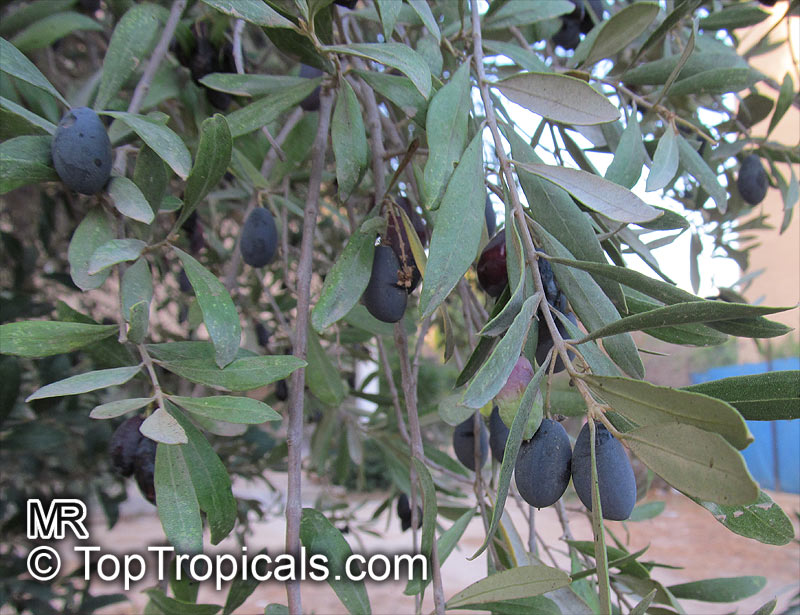
Shop Olive Trees
